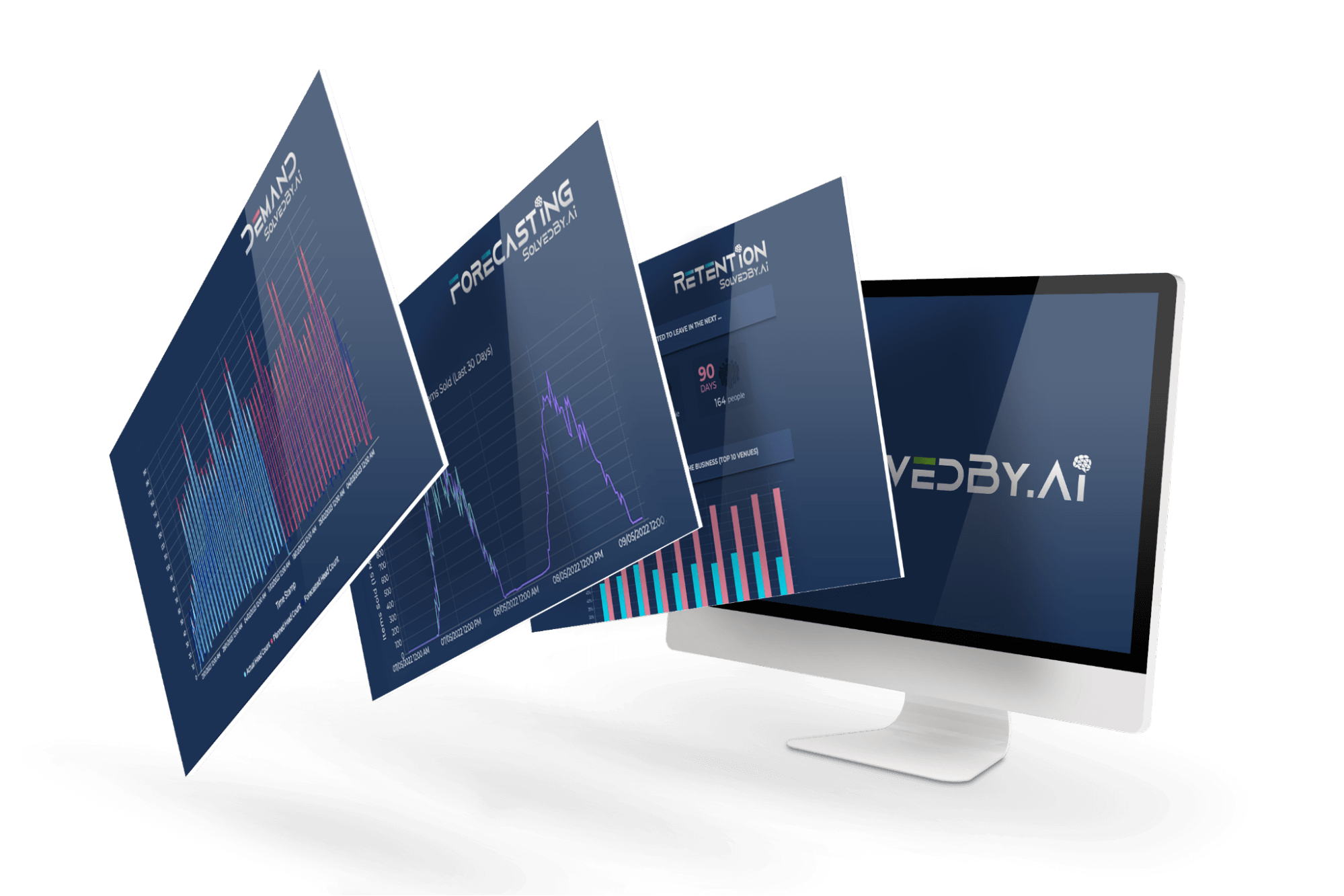The world of Partnerships uses many jargon, acronyms, abbreviations and technical terms – this is particularly true when discussing partnerships with AI-based products and companies. In this AI partnership glossary, we hope to help you understand what the common terms mean.
Activation
The process of enabling and mobilizing the partners you’ve recruited to perform valuable activities for your business. Many companies will define partners as “active” as soon as they’ve made a single successful referral or sale.
Agency Partner
An agency partner is a powerful partner, typically an agency that either sends you leads or closes business on your behalf. Agency partners work within the same industry between companies with aligned values and goals.
Artificial intelligence
A concept in computer science which aims to create intelligent machines that are equal to human beings in reasoning and decision-making.
Business-to-business (B2B)
A transaction between two organizations or businesses.
Business-to-consumer (B2C)
A transaction between a company and consumers or end users.
Buyer Persona
A semi-fictional or fictional representation of an ideal customer based on market research and data. It helps to focus marketing and sales efforts on customers who would benefit most from your product or service.
Channel Partnership Program
A widely-used business initiative, facilitating revenue growth through distribution rather than direct sales and marketing. Many industries, including SaaS, take advantage of these programs, which are often more efficient and cost-effective than traditional strategies. Through these partnerships, companies can focus on enabling partners to be successful rather than having to generate leads, referrals and sales by themselves.
Channel Partner
A company that works in collaboration with another organization to promote and distribute its products or services through indirect channels. These partners may take the form of vendors, resellers, VARs, agencies, retailers, managed service providers, co-sellers, systems integrators, or other such entities. Co-marketing activities are usually undertaken together by the channel partners.
Channel sales
Otherwise referred to as indirect or partner sales, involve selling products through third parties instead of a company’s own sales team. This could be agencies, influencers, or distributors. B2B software companies often use this approach as a go-to-market strategy.
Partners usually receive a commission for each sale, meaning that there is less overhead cost and risk than if a company were to hire and train an in-house sales team.
Cloud Marketplace
A digital store operated by a cloud provider, the Cloud Marketplace enables customers to obtain, manage and purchase cloud-based software applications that are pre-integrated with the provider’s product.
Co selling Partner
When two partners sell complimentary products at the same time, pitching together to solve a problem that requires both products. For instance, an HR and Workforce management company jointly sell their products. Typically the customer signs two contracts.
Commission Structure
How a company rewards partners for the revenue, they generate. Partner programs use this to determine the amount paid for sales, traffic-driven, and qualified leads sent. This structure also establishes how much the partner’s pay increases as more revenue is generated.
Direct channel
A way of distributing goods and services where the manufacturer sells directly to the end customer without involving any partners. This can be done either online, through mail order or face-to-face, as long as there are no middlemen between the producer and the consumer.
Distribution
In SaaS covers the ways in which a product is made available to customers, such as the entities and processes used to deliver cloud-based software to users.
Distributor
A partner that functions as an intermediary between vendors and resellers in a channel partnership is known as a distributor. This intermediary facilitates the procurement and payment process between vendors and resellers, such as value-added resellers and system integrators.
Ideal Partner Profile
An asset for identifying and catering to the needs of high-value partners, enabling them to reach their potential. This profile outlines the key traits and characteristics of an ideal partner, providing a roadmap to successful recruitment and collaboration.
Independent Software Vendor (ISV)
A company that develops, markets, and sells software to run on one or multiple computer operating systems (OS) or cloud platforms. This software is often distributed on marketplaces and is carefully vetted by the hardware providers, OSs, and cloud platforms to ensure only the best, most relevant software is approved.
Indirect Channel
Where goods and services are sold not directly from the producer but through independent middlemen to the end user. This is in contrast to direct channels, which involve the consumer purchasing directly from the producer.
Indirect Selling
An approach to marketing where goods and services are not sold directly to customers but instead through collaborating organizations such as resellers, agencies, or affiliate marketing partners.
Lifetime Value
An indicator that displays the aggregate sum of money a customer pays for your items or services throughout the duration of their association with your business.
Machine Learning
A branch of Artificial Intelligence where computers can discover patterns in data without needing direct instruction.
Managed Service Provider (MSP)
An outsourced entity that offers services through active management and support, either on-site for customers, at a data centre, or at a third-party centre. This type of service has evolved from providing just device-centric services and infrastructure to now also providing ongoing management and support.
Marketing development fund (MDF)
A form of support that businesses can give to their channel partners to help with their marketing and sales activities. This support can be in the form of money or knowledge-based resources.
Marketing Partner
An affiliate who promotes your products/services to their own niche audience, driving traffic to your properties via tracked links and earning a commission on any conversions. They are a great way to extend the reach of your brand.
Partner Relationship Management (PRM) software
A tool designed to enhance the partnership journey from beginning to end. It helps partners generate traffic, leads, and sales for a vendor while also aiding a partner manager and their team to manage partner relationships and provide assistance to partners.
Partner
Third-party entities that aid in the growth of a company’s reach, marketing and sales. These can be individuals, consultants, or businesses. There are many different kinds of partners, each providing different values, such as affiliate, referral and reseller partners.
Partnership Manager
Responsible for developing partner relationships to achieve company sales goals. May have a team to manage or work independently.
Partnership program
Connecting companies to multiple types of partners through a partnership program is a strategy that can provide marketing support, leads, and/or sales.
Partner ready Product
A software product that is capable of being sold, implemented and supported by a partner without over reliance on the software vendor.
Partner sourced revenue
The amount of revenue that can be directly attributed to a partner.
Referral Partner
A company that can provide your team with pre-qualified leads, generating a share of the revenue when a deal is completed. Referral partners generally have smaller client networks than those of marketing partners, however, their leads tend to be of a higher quality due to their direct connection with those they are referring.
SaaS
Stands for software-as-a-service. A software model in which the licensing and delivery of software is done on a subscription basis and hosted centrally.
SAAS marketplace
Another description for a cloud marketplace
Strategic alliances
Or joint ventures are collaborative relationships between two entities (typically businesses) that possess complementary or overlapping products and services, with the goal of achieving mutual benefits.
Systems Integrator
A company that specialises in system integration, a practice that involves combining component subsystems into an efficient whole and guaranteeing that they work together seamlessly.
Technology Partnership
A collaboration between companies to develop compatible services and products – often known as an integration partnership. This involves sharing and enhancing data to provide greater value to the customer and end-user.
Time to the first sale
How long until the first sale: This is a way to measure the time taken for new partners to make their first sale after they have joined the program.
Time to Value
Measured as the time it takes for a project to deliver cumulative benefit to an organisation, and reach its break-even point.
Value-added resellers (VARs)
Offer added value to clients beyond order fulfillment. This includes IT and professional services such as consulting, design, implementation, and training that enhance the solution.










